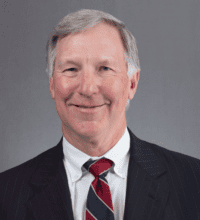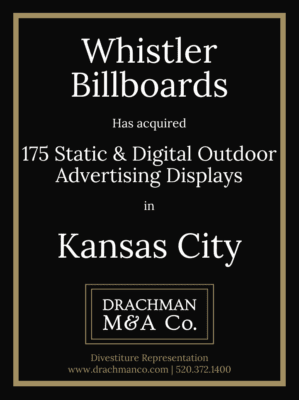
Chris Cowlbeck and his fantastic team at IBO are planning a fun and educational Spring Conference at the Sheraton Denver Downtown Hotel on May 5 through 8. While the last couple of conferences were enjoyable and helpful as usual, they were largely relegated to virtual presentations and smaller audiences because of Covid 19. By contrast, this conference, mostly after the Pandemic and things have returned to “normal,” will be live and in person. My law partners, Mike Falick and Chris Rothfelder, and I will be there, and I’ll be presenting on Friday May 8 on “Out of Home Advertisement of Cannabis Products.” Here’s a link to my power point presentation, and the following is a summary of my talk:
Chris and I picked this topic, as our conference site, Colorado, is the leader in cannabis legalization, with voters approving recreational marijuana in 2012, and State laws becoming effective in 2014. By 2019, Colorado had collected more than $1B in marijuana tax revenues. Indeed, State and local governments, especially during the Pandemic, are anxious for new revenue sources, and tax revenue from cannabis sales have now exceeded $2B across the Country. Thus, a majority of the States now recognize the legality of some form of cannabis, whether recreational, medical, or CBD products, and even the Texas Legislature has pending bills relaxing marijuana laws. During Covid-19, many States even deemed cultivation, processing, and sale of cannabis as an essential business.
New York Senator and Majority Leader Chuck Schumer has advocated for relaxation of Federal cannabis legislation, and the State of New York recently legalized recreational marijuana. President Biden is reportedly noncommittal. In the meantime, the 2018 Federal Farm Bill legalized CBD products with less than .3% THC; so, over this percentage is technically illegal under Federal Law. However, there is currently no active Federal prosecution under marijuana laws, but the cannabis industry is still prevented from accessing Federal stimulus relief and interstate banking services.
Just because a State has legalized cannabis does not mean billboard advertising is also legal, and in fact, Colorado didn’t permit marijuana ads on billboards until a couple years ago. Regulation of out of home advertising of cannabis varies by state and product. OAAA maintains a link on its website to comprehensive state laws on cannabis legislation and advertising regulation: https://oaaa.org/AboutOOH/Advocacy/CannabisLegalizationandRegulationMap.aspx. It has also reported that over 43% of cannabis ad spending goes to out of home media.
Typical advertising regulations are similar to those for alcohol, such as the following for Colorado, 1 CCR Section 212-3: (a) audience reasonably expected to be over age of 21, (b) can’t display consumption of products, (c) buffer zones (500’) from schools, churches, and playgrounds, (d) no advertising out of the state, or transporting across state lines, (e) compliance with local ordinances. Municipalities often regulate or prohibit the sale or advertising of marijuana, and do so under zoning and other land use ordinances. The OAAA has also adopted a Code of Conduct, to voluntarily refrain from excess, thereby avoiding governmental restraints.
There are several special legal issues presented by the out of home advertisement of cannabis products, starting with the notion that the First Amendment generally protects the right to advertise legal products. Nevertheless, the major tobacco companies voluntarily agreed in a 1988 settlement agreement to not advertise their products on billboards. Additionally, in a recent case, Farmer vs California, a 2016 voter initiative known a Proposition 64, permitting marijuana billboard advertising on highways at least 15 miles from the California borders, was invalidated, such that no marijuana billboard advertisement is now allowed on any highways that cross the State lines. Many States that have legalized marijuana also require pre-approval of advertising copy, including Minnesota, Nevada, New York, North Dakota, and Pennsylvania. Further, States that permit marijuana advertising limit it to “adult audiences,” typically meaning “reasonable assurance” that at least 70% of the targeted consumers are over 21. Importantly, political speech, as opposed to commercial advertisement, advocating relaxation or increase in marijuana laws is afforded broader protection under the First Amendment. Relatedly, the refusal to display marijuana commercial or political ads on privately owned billboards is permitted; however, displays on Public Forums, especially if viewpoint criticism, may have to be displayed.
In conclusion, the out of home operator should confirm compliance with state and local laws, and voluntarily exercise restraint to avoid governmental intervention. I hope to see you in Denver soon!
[wpforms id=”9787″]
Paid advertisement

















